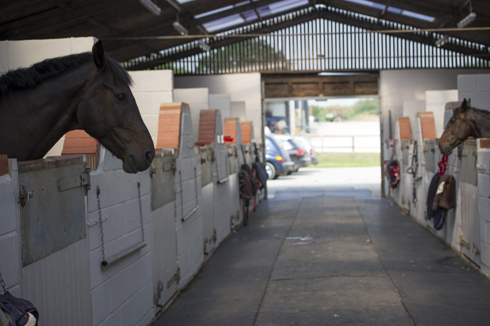Experts are calling for all owners to incorporating simple measures into their daily routine to help prevent the spread of disease, warning that biosecurity leaves ‘a lot to be desired’ at many yards
Owners who have become complacent about biosecurity must up their game to combat the real risk of infectious disease.
Following the equine herpes virus outbreak in Hampshire (news, 16 January) and more than 219 equine flu outbreaks in 2019, experts agree more can be done to reduce the risk of disease spread — and call for people not to forget about biosecurity when outbreaks are not prevalent.
David Rendle, specialist in equine internal medicine and member of the British Equine Veterinary Association’s health and medicines committee, told H&H biosecurity leaves “a lot to be desired” at many yards.
“We all are too complacent about the risk of infectious disease,” he said. “People think outbreaks will happen to someone else and that’s why they don’t take the precautions they should.
“The biggest risk is horses moving, not being quarantined, vaccinated or tested for disease. As a minimum we would like people to be more proactive in vaccinating. Faced with an outbreak everyone is inclined to vaccinate and take things seriously, but it’s soon forgotten.”
Mr Rendle said owners must travel horses responsibly.
“If they have concerns about their horse, or others on their yard, having an infection they should consider the greater good and not travel their horse to a competition or other premises,” he said.
World Horse Welfare chief executive Roly Owers told H&H the more steps people take, such as avoiding sharing buckets and tack, stopping horses coming into direct contact with others at shows, taking temperatures and isolating new arrivals, the more the risk of disease is reduced.
“The risk is very real and too many are not doing enough to protect the health — and therefore welfare — of horses,” he said.
“We cannot remove the threat of infectious disease so we have to be better at incorporating simple biosecurity measures into our daily routine. And never forget to work with vets regularly to challenge the measures we take to protect horses — the threat of disease is ever-changing, so we need to change too.”
British Equestrian Federation interim CEO Iain Graham agreed riders “could do better”.
“People are not vigilant enough and if there isn’t disease obviously there, guard drops and the extra effort isn’t put in,” he told H&H.
“Riders assume when they turn up at a competition that everyone’s horses are healthy — but they don’t know that.”
Mr Graham said steps taken by governing bodies, such as six-month vaccination requirements, are to reduce the risk of disease spread and protect venues.
“For venues it’s a real concern if business relies on horses attending; if doors have to shut they have no income. They have restrictions or requirements so we can continue to compete and move horses as safely as possible,” he said.
You may also be interested in…

Biosecurity: how to protect your horse from diseases

Make your yard biosecure to help prevent infection
Biosecurity technology currently in use by a handful of racing yards is now available to competition yards across all disciplines

How to keep infections at bay in the yard *H&H VIP*
How can we keep infectious disease at bay? We outline how yard practices and routines contribute to biosecurity

How ‘at risk’ is your yard from the threat of disease?
As the risk of equine diseases remains rife throughout the UK; how at risk is your yard?


